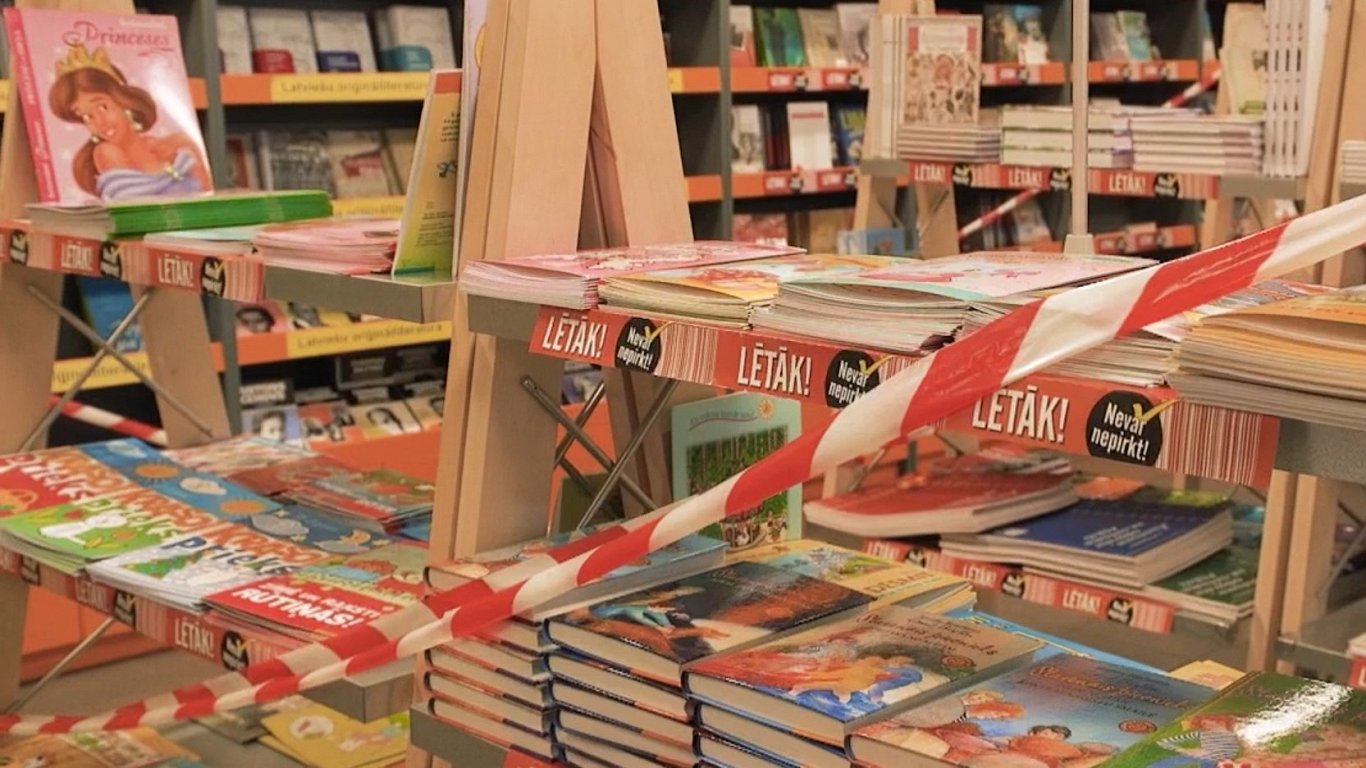In order to fight the Covid-19 spread, the government decided shortly before Christmas that only essential goods could be purchased in person. The list of allowed goods does not include books. Parliamentary Secretary of the Ministry of Economy Jurģis Miezainis ('KPV LV') said that these lists are designed on the basis of “whether this is something without which a person can survive a week, two, three.”
Author Dace Judina-Nīmane thinks it is absurd that a book is not essential while sitting at home. "At the same time, one can get alcohol in any way(..) So you can't read, but you can drink. You can't read, think, analyze. To drink, get drunk, to get stupid and angry, that's ok."
The director of the State Chancery, Jānis Citskovskis, said that the harsh reality must be acknowledged:
"Though alcohol is harmful, the vast majority of society cannot survive without alcohol throughout this period. We can moralize about books and compare them with alcohol, but unfortunately not only in Latvia, but also in other countries, it is a commodity of first necessity."
It is true that in other countries, including France, Italy, Germany, books and alcohol are on the same list: "Even in countries with a very severe crisis, books are added to essential goods, because it is actually the only cultural item that you can obtain by stepping into a shop shortly and enjoy remotely," said Renāte Punka, head of the Latvian Publishers Association.
One of the grounds for a ban on the sale of books by the government was the argument that they were available in libraries. However, it is difficult for readers to get to the desired books. For example, in the libraries of Jūrmala, there are 18 people waiting in line for the most popular books. In terms of time, the reader at the end of the line will only be able to get it in 10 months.
A second argument – there are no restrictions on book sales on the Internet.
However, there are a number of people who do not shop on the Internet and the turnover of Internet bookstores is still small. According to Punka, the turnover of Internet stores is not more than 30% of the total.
This week, the Ministry of Culture (KM) advanced the proposal to add books to the list of goods allowed on sale. KM Deputy Secretary of State Uldis Zarins, explaining the ministry's initiative, said that "book trading is important, given that the book is one of the ways in which people can actually be kept longer at home."
Responsible officials are convinced that books can keep a person in the store for longer than would be allowed under these circumstances.
“Books are naturally linked to the fact that people look at them, read them, and thus spend a considerable amount of time in this particular shop,” said Jānis Citskovskis, director of the State Chancery.
Book publishers' losses have been impressive in the past six weeks. Turnover fell by 10 per cent in December and 70 per cent in January. Books pile up on shelves of shops and warehouses. Publisher Zvaigzne ABC has already closed one of its 34 bookstores.
The owner of the Zvaigzne ABC, Vija Kilbloka, has decided to fight in the Constitutional Court for the right to sell books:
“I've studied to be a lawyer, and I can't live with that feeling that the law is in place, but it doesn't really work, basic principles are not respected and the meaning of the law is mocked.”
Book publishers and sellers point out that there is a lack of clarity about the length of restrictions at the moment to understand what decisions to take to stay afloat. The Ministry of Economy has prepared the concept of Safe Trade, the substance of which is not to sort goods, but to ensure that the purchase of all goods is safe, taking into account the distance and the number of people allowed. However, the introduction of the concept has not been supported by the Ministry of Health in the coming weeks.
The Health Ministry hopes Covid-19 spread could ease after a month, when sale restrictions could also be revised.
Publishers and sellers say that time will soon come when they can no longer be deceived by hope. Publisher Jānis Roze director Ināra Belinkaja said that "you have to look at it with open eyes and understand that such a naive reliance will not work and you will have to take the appropriate steps".


























